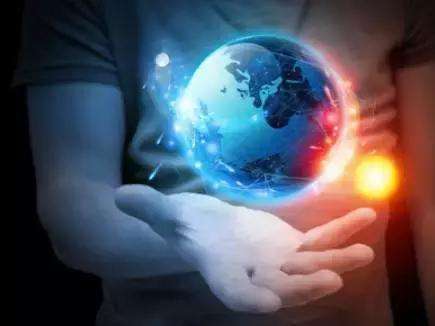(单词翻译:单击)
听力文本
This is Scientific American — 60-Second Science. I'm Steve Mirsky.
"I think it's really important for us to use this magical power of invention and innovation to change the lives of people who really needed their lives changed."
Nathan Myhrvold, co-founder of the technology development company Intellectual Ventures. He was formerly Chief Technology Officer at Microsoft. He spoke at the World Conference of Science Journalists in San Francisco October 28th.
"People at the bottom billion in the world from, well, from any perspective. You can look at the bottom billion from health care or from poverty, it's pretty much the same folks. And those are people who need their lives transformed. But the iPhone X isn't how to do that. You need to have other kinds of technology that will focus, and try to make a magical solution to what's otherwise an intractable social problem."
"Now, when I say this to people in the world of global development they often say, oh yeah, we tried a high-tech thing and it failed. And I always laugh when I hear this because high-tech things always fail."

"For example, there were 33 search engines launched before one of them was successful. The world didn't say, oh, search engines, yeah, we tried that, it failed. The technology world is all about failure. Thirty-two search engines failed before we got Google. Yet, a lot of times when we look at the developing world and people say, oh, we tried this it didn't work, we tried that it didn't work. Well, okay, you got 30-something more to go."
"Part of the point here is that inventing anything is hard. Even if you're creating a search engine in the middle of Silicon Valley, it's hard. That's why those other 32 companies failed. Of course, if you're trying to solve a completely intractable problem of poverty or health care in an area where there is none, you should expect that's not going to be any easier. It probably is harder. But that doesn't mean you shouldn't try."
For Scientific American — 60-Second Science. I'm Steve Mirsky.
参考译文
这里是科学美国人——60秒科学。我是史蒂夫·米尔斯基。
“我认为对我们来说非常重要的是,利用发明和创新的魔力来改变真正需要改变生活者的人生。”
技术研发公司高智发明公司的联合创始人内森·梅尔沃德说道。他曾是微软公司的首席技术官。他在10月18日旧金山举办的世界科学记者大会上发表了讲话。
“他们是世界上最底层的10亿人,无论从任何角度来看都是如此。你可以从医疗保险或贫困程度来判断是否属于最底层的10亿人,而最后得到的基本上是同一群人。这些人就是需要改变生活的人。但是靠iPhone X解决不了这个问题。你需要其他种类的技术,集中注意力并努力想出神奇的解决方案,来解决难以应付的社会问题。”
“现在,当我对致力于全球发展的人士说这些话时,他们经常会说,是啊,我们尝试过高科技产品,可是最后失败了。我听到这种话时总是会笑,因为高科技产品一直在失败。”
“比如,人类一共推出过33个搜索引擎,但只有1个成功了。可是技术界不会说,哦,搜索引擎,我们尝试过了,可是失败了。技术界就是和失败联系在一起的。在谷歌成功之前,有32个搜索引擎失败了。但是,我们在观察发展中的世界时,有很多次听到人们说,哦,这个我们尝试过了,可是没有用,那个我们也尝试过了,同样没有用。没关系,你还有30多次要试呢。”
“关键问题是发明什么都很难。即使是在硅谷中创建搜索引擎,也是很难的事情。这就是其他32家公司失败的原因。当然,如果你要在没有保障的地区解决极为棘手的贫困问题或医保问题,你应该想到这不会更容易。而是可能会更难。但是这并不意味着你不该尝试。”
谢谢大家收听科学美国人——60秒科学。我是史蒂夫·米尔斯基。
译文为可可英语翻译,未经授权请勿转载!
重点讲解
重点讲解:
1. for example 例如;比如;
例句:For example, dogs may be able to hear the microfacturing of rocks a few milliseconds before a quake shock reaches the surface.
比如说,狗也许能在地震到达地表几毫秒之前听见石头间的微小动静。
2. even if 即使;尽管;纵然;
例句:Food seems to have been available, even if the quality left much to be desired.
食品似乎能够买到了,虽然质量还远不尽如人意。
3. in the middle of 中部;中央;中间;
例句:I was in the middle of the back row.
我在后排的中间。
4. of course 当然,自然;
例句:Some people, of course, denied the validity of any such claim.
当然,一些人否定了此类说法的合理性。


